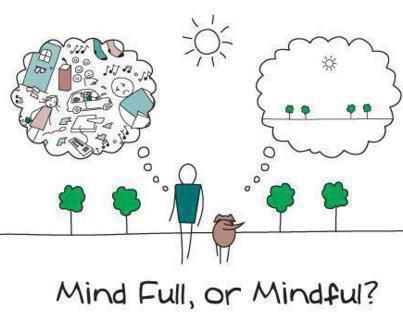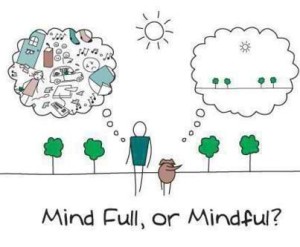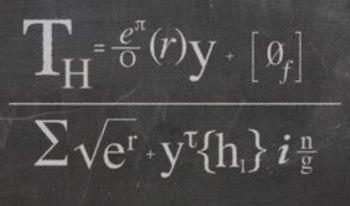Mental Wellness is Being Present :
“If you are depressed, you are living in the past, if you are anxious, you are living in the future. If you are at peace you are living in the present” — Lao Tzu
So I had an epiphany when a colleague recently asked me how I would define “mental health”. All sorts of things occured to me: Leading a balanced lifestyle, ability to fluidly recognize and express feeings and needs, feelings of committment and personal challenge and so on. While I continue to feel all these are important ingredients, they don’t necessarily define mental health. Certainly, one thing is apparent; mental health in not defined as the absence of disease or illness. Too long has psychology and medicine been governed by a pathology model. Fortunately, both disciplines I believe are heading more towards a wellness model. The implications are to help people become more well, rather than less sick.
When contemplating the question it occured to me that 2500 years ago there was a great physician , who wrote us all the prescription for wellness and who identified the origin and basis for mental dis-ease. His name of course was Siddhartha Gautama Shakyamuni, The Buddha. In diagnosing the illness inherent in the human condition he sited in the “second noble truth” that the basis of all suffering is desire, (including longing, grasping and aversion). This and other factors causes us to abandon the moment and to be absent from the present. Now, certainly, it can be argued that many forms of mental illness such as mood disorders, panic disorder, schizophrenia are not attributable to desire…at least not directly. Thus, those issues need to be addressed through a proper combination of medication management, psychotherapy, behavioral management and so on. But most of us, even when not suffering from diagnosable illness are still experience profound dis-ease and mental suffering.
Now one thing has become evident to me, there appears to be a correspondence between how well someone is, and how present they are. Let me explain. When I was on internship athe the Long Beach VA hospital, I used to play volleyball at lunchtime with psychiatric inpatientt residents , most of whome were diagnosed with bipolar disorder and schizophrenia. Most of the time, they were stuck in their own little worlds. But at the moment the ball came to them, they would temporarily wake up and be present. I would even point out to them and say, “Just then you weren’t crazy!” They would get a huge kick out of that.
About six years ago, I had an opportunity to see the Dalai Lama speak in a large venue on the Cornell campus in Ithaca, NY. What struck me the most, was not so much what he said, but the sensation that he was one hundred percent present. He was just all there. In talking with other folks who had seen the Dalai Lama or other advanced/enlightened masters from whatever spiritual tradition, they are typically left with the same impression.
On a large number of occasions, in my work with patients at my office, a number of patients appear to at some point in their therapy start looking around the office and noticing things. It’s as if they were waking up from a slumber. Occasionally they might ask something like, “Was that always hanging on the wall?” (pointing to a large picture on the wall). So it occurs to me, that when we are the most ill, we are largely gone. We are caught in the present or stuck in the past. As people start to heal, they start becoming, I suppose, at least a bit more present. And of course that means one must be present with whatever they are experiencing, even if that experience is painful. Suffering arises, not because of the pain per se, but as a result of our aversion to the pain and thus our attempts to avoid or otherwise control that pain. We continually leave ourselves in the continuing quest to abandon pain. However, this only leads to further suffering.
So the implications are clear. Whether or not we have diagnoseable mental illness, in one sense at least, we are all ill in that we are only marginally present and accounted for. Therefore, we all need to engage in practices to, in the words of Ram Dass, “Be Here Now!” The practice of mindfulness and meditation are thus critical actions we must all take towards establishing mental health. And we must also learn to be present with all that we experience, including the most painful emotions, memories, physical sensations and so on. And in so doing, become increasingly free and awake.
Future posts will recount exercises with patients and others to embrace the most difficult emotional experiences encountered on their journey toward wellness and “presentness”.






